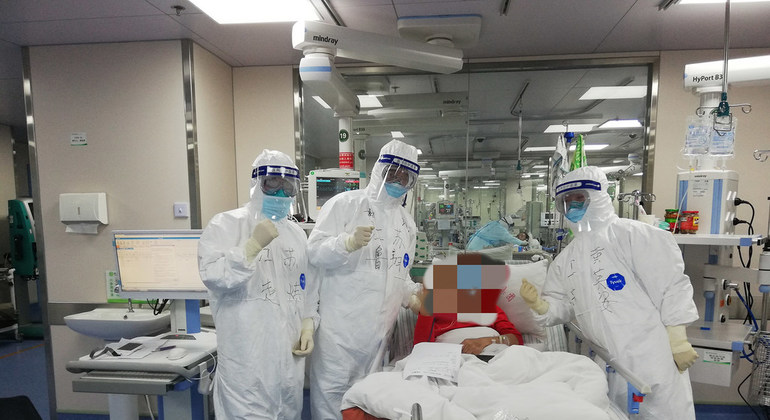“Their tireless work and self-sacrifice show the best of humanity”, said Baskut Tuncak, Special Rapporteur on the implications for human rights of the environmentally sound management and disposal of hazardous substances and wastes.
Hailing the healthcare workers as “heroes” who “must be protected”, he stressed that unacceptable shortages in critical protective equipment that can stop them from being infected, continue to plague nearly all nations battling the new coronavirus.
Moreover, low-income countries have even fewer resources, including the necessary protection for their healthcare providers.
“Public and private funds are urgently needed to ensure that protective equipment and other medical supplies are universally available and accessible”, he stated. “States and businesses should ensure that financial obstacles are removed and that supplies are provided at no cost for low-income countries”.
HeAnd to those hoarding equipment and exploiting the crisis for profit, were nothing short ofhe called “abhorrent”.
“It is time to put aside our differences and to work together to protect the most vulnerable people from this virus, the elderly and those who bravely care for them: our health care workers”, said the independent rights expert.
Safeguard older persons
Focusing on another vulnerable segment of the population, in societies across the globe, older persons, who are bearing the lion’s share of the pandemic, must also be fully protected from the infection, argued Rosa Kornfeld-Matte on Friday, UN independent expert on the enjoyment of all human rights by older persons, saying that they are “bearing the lion’s share of the pandemic”.
“Reports of abandoned older persons in care homes or of dead corpses found in nursing homes are alarming”, she underscored.
Calling it “unacceptable”, the UN independent expert said, “we all have the obligation to exercise solidarity and protect older persons from such harm.”
In addition to a disproportionate risk of death, they are also under threat due to the extra special care they may need, or throughalso put them under threat, as does living in high-risk environments, such as residential homes, according to the expert.
The elderly with underlying health conditions, the socially excluded and those poverty-stricken or living in confined spaces, such as care homes and prisons and residential care homes, are of particular concern.
“Older persons have become highly visible in the COVID 19 outbreak but their voices, opinions and concerns have not been heard”, she flagged.
“Instead, the deep-rooted ageism in our societies has become even more apparent”, she said, pointing to “some cruel and dehumanizing language on social media”.
She closed with a call to continue support services at home and in communities “without putting older persons and their care providers at risk”.
“Communities and generations must come together to get through this crisis in solidarity,” Ms. Kornfeld-Matte concluded.
Domestic violence risk rises
Meanwhile, the UN Special Rapporteur on violence against women, Dubravka Simonovic, pointed out that restrictive measures to fight COVID-19 are intensifying the risk of domestic violence.
“It is very likely that rates of widespread domestic violence will increase, as already suggested by initial police and hotline reports”, she said.
For many women and children, home can be a place of fear and abuse that is heightened by the COVID-19 pandemic”, she warned.
“All States should make significant efforts to address the COVID -19threat, but they should not leave behind women and children victims of domestic violence, as this could lead to an increase of domestic violence including intimate partner femicides”, Ms. Simonovic upheld in a statement.
To make matters worse, movement restrictions and financial constraints “embolden perpetrators and provide them with additional power and control”.
Ms. Simonovic expressed particular concerns about women at higher risk of domestic violence, such asAnd women with disabilities, undocumented migrant women and victims of trafficking are at even higher risk of domestic violence.
The UN expert called on governments not to put the protection of victims on hold and urged them to continue to combat domestic violence in time of COVID-19.
Measures to protect victims must remain available or be adopted during the crisis. That includes ensuring access to protection by restraining orders and maintaining safe shelters and help lines for the victims, she said.
Ms. Simonovic called on Governments to come up with urgent measures to assist these victims.
“Governments must not allow the extraordinary circumstances and restrictive measures against COVID-19 to lead to the violation of women’s right to a life free from violence”, concluded the UN expert.
Click here for a list of the nine UN independent experts who endorsed Ms. Simonovic statement.




